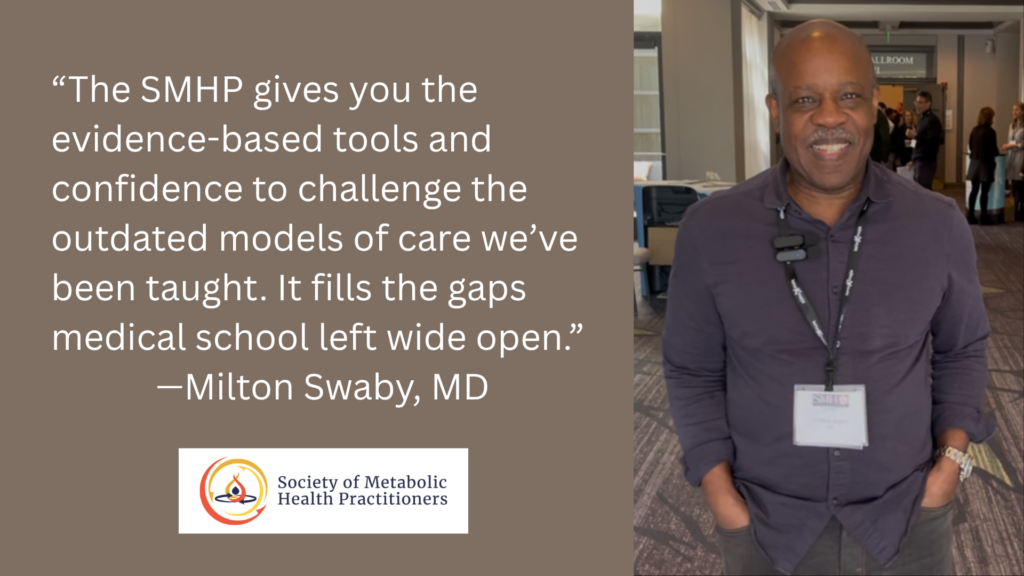Dr. Milton Swaby, a Physical Medicine and Rehabilitation physician and Medical Director at Trinity Health in Ohio, works daily with patients facing some of the most serious health challenges imaginable—stroke survivors, amputees, spinal cord injuries, and complex neuromuscular cases. His mission is to help them reclaim their lives. But just a few years ago, he had to confront his own health crisis.
At the time, he was 30 pounds overweight, pre-diabetic, and experiencing swelling and neuropathy. His blood pressure was climbing, and his primary care doctor was ready to put him on medication. Around that same time, a stroke patient he had previously counseled returned with a second stroke. “That moment hit hard,” he says. “I told him how to avoid this, and here I was on the same path myself. I had to ask—what the hell am I doing?”
That moment of reckoning sparked a deep dive into nutrition science. Unimpressed with plant-based recommendations, Dr. Swaby found his way to the work of Dr. Eric Westman, Dr. Paul Mason, Dr. Ken Berry, and others advocating for therapeutic carbohydrate reduction. He quietly began implementing a low-carb, high-fat diet in his own life—what he now recommends to patients as a “beef, butter, bacon, and eggs” approach. His A1C dropped from 5.9 to 5.0, and he lost 30 pounds. He felt better than he had in years.
Watch the testimonial from Milton Swaby, MD and others on The SMHP Testimonials page
More importantly, he started applying the same approach to his patients. Since then, he’s helped dozens of individuals reverse diabetes, hypertension, and obesity—often within just a few months. “The results are undeniable,” he says. “And when patients finally follow it exactly, it works. Every time.”
Dr. Swaby now uses resources from the Society of Metabolic Health Practitioners (The SMHP) in his clinical work, including downloadable dietary handouts and educational materials. He’s also working toward his SMHP Metabolic Health Practitioner accreditation. “This organization gives you the evidence-based tools and confidence to challenge the outdated models of care we’ve been taught. It fills the gaps medical school left wide open.”
He’s attended three Low Carb USA/SMHP Symposiums for Metabolic Health — two in Boca Raton, one in San Diego—and says the experience is “full immersion.” What sets the conferences apart isn’t just the caliber of the speakers or the CME credits—it’s the connection.
“You’re surrounded by people who speak your language. You’re having lunch with the same doctors you’ve been learning from for years. You’re digging into new data and actually talking about it at the dinner table. And that’s not even counting the CME credits and outstanding speakers.”
He adds that most attendees have already been doing this work on their own—but at the conference, they find confirmation, community, and renewed purpose.
As the SMHP prepares for its 10th Annual San Diego Symposium for Metabolic Health (August 14–17), Dr. Swaby has a clear message for anyone considering attending: “It’s worth the time and the expense. You’re not just learning—you’re investing in your own life and in the lives of the people you care for. This isn’t a trend. This is science, this is support, and this is how we start turning the tide.”

